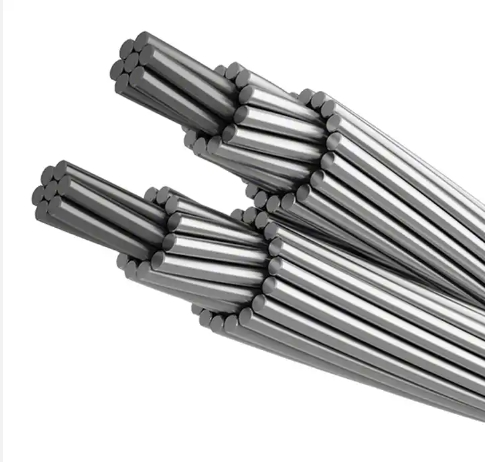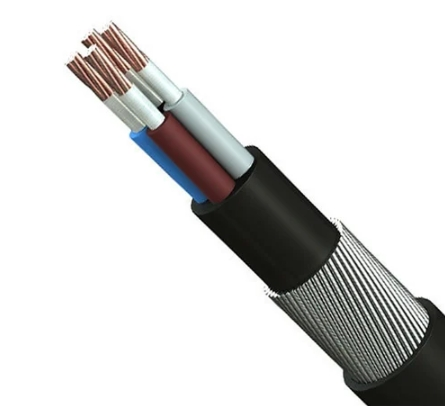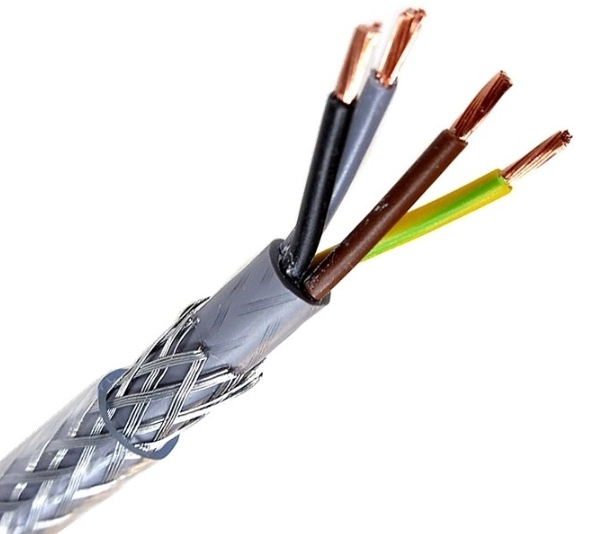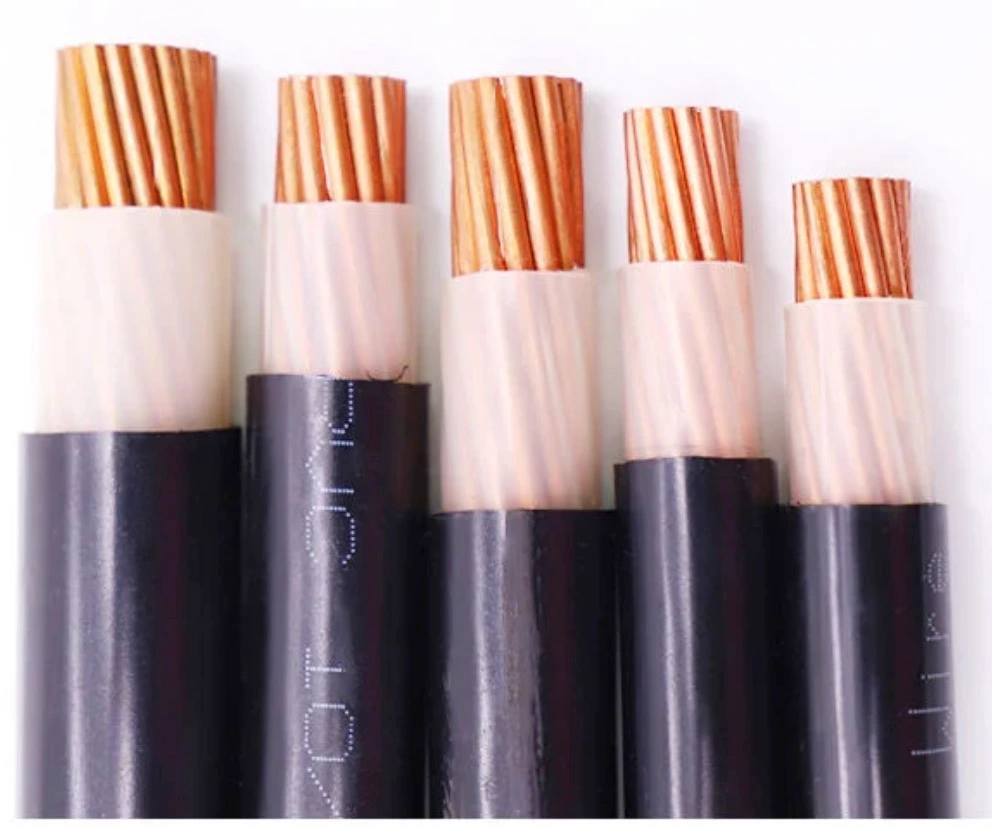Many people use more and more electrical appliances in their homes, and wherever there is electricity, they must connect with wires. House wires are related to life safety and should not be sloppy, so selecting electrical wire and cable is crucial.
House wire is an electrical wiring system installed in and around the house, mainly used for lighting, power sockets, and other electrical equipment. Generally, copper or aluminum is used as the wire conductor, and the outer layer is wrapped with non-conductive electrical wiring insulation and sheath to prolong the service life of the wire and cable. And to ensure the safety of electricity. Here is some relevant information about cable for house.
What type of house wire is used to wire a house?
There are different types of electric wire cables for wiring a house, and the following will show you the most common types of house wire.
Solid copper wire
Solid copper wire is also named single-cor e wire. It consists of a solid copper wire as a conductor, and the outer layer is wrapped with PVC insulation. Copper has strong electrical conductivity and has significant advantages in the efficiency of current transmission and reliability of power supply. It has the features such as good heat resistance and corrosion resistance, and increasing usage time of household electrical wiring.
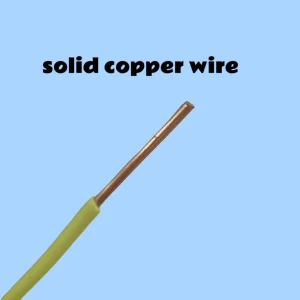
In the house, solid copper wire is mainly suitable for some household appliances, lighting equipment, and small appliances with a voltage of 450v~750v and below. Solid copper wire has different gauges; commonly used sizes are 1.5mm, 2.5mm, 4.0mm, etc. When we need some house wires to buy, it’s necessary to choose the appropriate size based on the actual situation and ensure that the purchased solid copper wire meets the relevant safety standards.
Stranded copper wire
Like solid copper wire, stranded copper wire generally has a layer of PVC insulation, but the conductor is composed of multiple thin copper wires twisted together. It is more flexible than solid copper wire, making it easier to thread and install when wiring your home. The load current capability is strong, but the heat dissipation will be faster due to the gap between the copper wires.
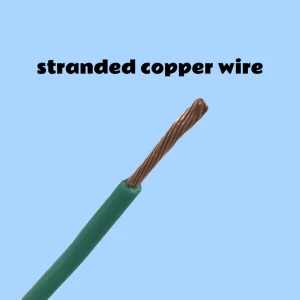
Stranded copper wire is mainly used in building wiring, power distribution systems, and automobile wiring harness. Its’ gauge is just as solid copper wire. The quantity of stranded copper wire can be changed: 7 strands or multi-strand copper wire, and these conductor structures belong to class 2 and class 5. If you want this type of wire to buy, you need to ask the electrician for the right gauge and don’t forget to keep it safe in the wiring home.
Flexible wire
Flexible wire is softer and more bendable than regular wire. The multiple strands of thin conductors that are made of copper, tinned copper, or aluminum add a PVC insulation and a PVC sheath. And stranded conductors can increase the current-carrying capacity of the house wire. The most common household wires are 3 wire house wire, 4 wire house wires, etc., and even more. When wiring home, Flexible wire can easily pass through narrow areas due to its flexibility and will not break due to repeated bending.

When people choose it, they are supposed to consider various factors such as the house wire gauge, the conductor material, the insulating material, the ability to carry current, and the expected application.
wire house for ethernet
In order to make the network connection at home more stable and people surf the Internet faster, humans need to install Ethernet at home. At the same time, installing Ethernet can also reduce some other signal interference from around the house and improve the home network’s security. In addition, house wire for Ethernet can help you connect other devices in your home, such as printers and some smart home devices. So, how to install Ethernet?
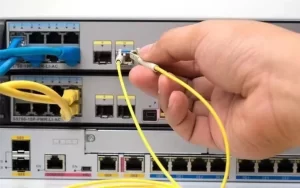
Multiple factors need to be considered during installation, combined with specific reality. Here are the installation steps for house ethernet:
Step 1. Determine the purpose and scope of establishing Ethernet;
Step 2. Purchase the equipment needed;
Step 3. Before installation, touch metal objects to discharge static electricity;
Step 4. Put the network switch in place for easy connection;
Step 5. Connect the network adapter of the computer to the free port of the network switch with a network cable;
Step 6. Connect other equipment you need;
Step 7. Configure the network settings of the computer;
Step 8. Finally, perform a network test connection to check whether the network cable is connected properly and can be used smoothly in the future.
When installing and connecting, it is recommended that you consult the local network installer to standardize the installation and ensure safe electricity use.
Aluminum house wire
Aluminum House wire refers to wire with aluminum as a conductor and an outer layer of insulation. In the past, aluminum house wires often appeared in family houses due to their low cost, but due to their low electrical conductivity, high electrical loss, poor tensile strength, low corrosion resistance, and the joints are particularly prone to oxidation, they are prone to tripping, power outage, even fire. If you insist on using aluminum house wires for household wires, we recommend choosing a larger size, such as if you need 2.5mm copper wires, then we recommend using 4mm aluminum house wires.
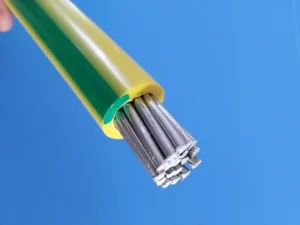
Now we know a bit about types of house electrical wire; then we also need to know some knowledge of house wire gauge.
House Wire Gauge-What Gauge Wire for House?
In the house, people will use all kinds of electrical appliances, so that we will use different gauges of household wires. The gauge of the household electrical wire is determined by the amount of current carried by the circuit. The bigger the house wire gauge number, the lower the amperage carried and the bigger the house wire conductor resistance. The following are some typical gauge and applications required for a home.
- 14 Gauge house wire, It is the most commonly used home wire gauge in residential buildings. The rated current of the 14-gauge wire is 15 amps. It is used for electrical light wire and general sockets wire. The power is not large for these applications, and the 14-gauge wire can be used.
- 12 Gauge house wire, also the common gauge for home, rated at 20 amps, mostly used for kitchen outlets, laundry rooms, and some appliances that carry a lot of currents.
- 10 Gauge house wire, rated at 30 amps, used for electric furnaces, water heaters, ovens, and other electrical appliances.
Of course, some circuits may use larger house wire gauge, depending on appliance current and local electrical codes. It is worth noting that when determining the house wire gauge, in order to ensure the safe use of electricity, it is necessary to consult the local electrician or check the local electrical code. The following is the house wire diagram.
| Wire Gauge (copper) | Nominal cross-sectional area(mm²) | Size(amps) | Most common application |
|---|---|---|---|
| 16 | 1.318 | 13 | extension cords |
| 14 | 2.075 | 15 | Electrical light and general sockets |
| 12 | 3.332 | 20 | kitchen outlets |
| 10 | 5.26 | 30 | electric furnace and electric dryer |
| 8 | 8.37 | 40 | air conditioner |
After understanding the above information about house wire, we can learn about the house wire colors and then see what household wires refer to.
House Wire Color
Different colors of wires have different purposes and represent different functions, and regional differences may differ. For details, please refer to local standards and regulations. Here are some commonly used house wire colors in house hold electrical wire:
Red and yellow: live wires, which provide the mains voltage and transmit the live current from the power source to the socket, switch, or appliance;
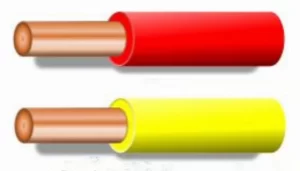
Blue: The neutral wire is neutral wire, which is often used to carry current and form a power circuit with the live wire;

Green and double-color: Generally, it is a double-color wire composed of yellow and green, which belongs to the ground wire. When the circuit fails, the current is led to the ground to protect personal safety, protect equipment and eliminate static electricity.


If your home wire has been used for a long time, then you should check your house wires and understand the consequences of ageing household wires.
Is old electrical house wiring safety?
Old house electrical wire may not be safe. Old electrical systems can cause safety hazards over time, and aging circuits and environmental influences can cause wires and conduits to become stiff and brittle.
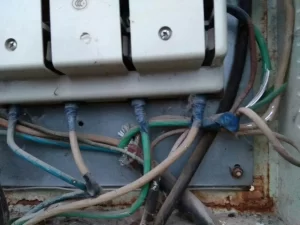
The old electrical system cannot meet the needs of modern electrical equipment, and the previous house electrical wire may not meet the current electrical codes and standards. Old insulation materials may deteriorate over time, and there is a risk of directly exposed house wire conductors, making it unsafe to use electricity. Therefore, in order to ensure people’s own safety and standardize the use of electricity, people need to regularly check and repair the wires.
Therefore, if you want to buy some house wires to your home, you’d better plan a budget in advance.
How much does it cost to wire a new house?
Wiring a new house needs to contemplate many aspects, such as house size, type of home wiring, wiring location, and local electrical requirements. It mainly includes house wiring labor costs, house wire price, materials and equipment, and some specific needs of your own. The following is only a rough estimate, for reference only, and should be combined with the actual local conditions.
| Component | Cost($) |
|---|---|
| Labor cost | 1500~8000 |
| House wire price | 1500~6000 |
| Materials & equipment | 2000~10000 |
| Specific needs | Extra cost |
| Total cost | 5000~20000 |
The labor cost depends on the scale, time, and complexity of the house wiring. The price of materials and equipment will vary because of factors such as materials, quality, and service. About the house wire price, please ask the wire supplier. Some specific needs of electrical home wire will add additional costs. It is recommended to consult multiple local electricians to compare prices. When choosing a quotation that suits you, you must also pay attention to wiring home safety and regulations and comply with relevant standards.
Conclusion
Electricity safety in the household is vitally essential, and slight carelessness may result in death from electric shock or fire. Therefore, choosing the right house wire can reduce the risk of accidents. When purchasing cable for house, house wire gauge, insulation, conductor, length, and quality need to be considered and must follow the local electricity rules and standards. Finding a reliable manufacturer and supplier is also crucial. Just like ZW Cables, we have professional technology and the best quality. And we trust quality all the time. We will provide you with suitable house wire price and high-quality house wires, and then you an buy cost-effective house wires.


